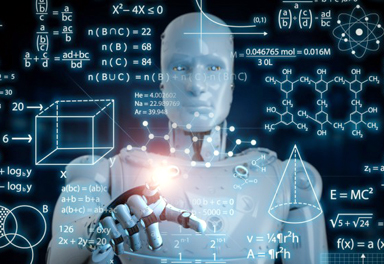DE Online Desk
How will artificial intelligence (AI) have changed the world by 2030? That very much depends on who you ask.
US artificial intelligence researcher Eliezer Yudkowsky famously made a $100 (£82) bet that AI will have wiped out all human life by 1 January, 2030.
Meanwhile, consultancy PwC has predicted AI could add $15.7trn to the global economy by the same date – and Goldman Sachs has predicted 300 million jobs will be lost to AI worldwide.
But the ways AI could have changed our life by 2030 go far beyond either making us rich or making us all dead, Dr Ajaz Ali, associate head of business and computing at Ravensbourne University London, told Yahoo News UK.
Many industries could have completely changed thanks to the impact of AI, Dr Ali said – with personalised assistants transforming health, education and the law as well as other sectors.
How AI could change healthcare by 2030
By 2030, sensors worn on people’s bodies will send real time health data to an AI-based system that will be highlighting any critical issues to doctors for immediate attention (or resolving them autonomously), Dr Ali said.
“AI has already been used to detect early signs of Alzheimer’s disease, diabetes, and cancer, allowing for earlier intervention and better outcomes for patients.”
By the end of this decade, as well as current wearable sensors which monitor blood pressure, electrocardiogram (ECG), heart rate, stress levels, devices will measure glucose and cholesterol, among other things.
Students raising hands while teacher asking them questions in classroom
AI assistants will play a huge part in the teaching process by 2030. (Getty Images)
Dr Ali said: “By 2030, we could see AI-powered devices capable of detecting and diagnosing diseases in real-time, enabling more accurate treatment plans.”
Advances in genetic technology will mean that patients can get personalised treatment plans – and AI will boost the accuracy of areas such as radiology image analysis.
In the near future, AI will be fully involved in research and development of new drugs to cure many diseases considered untreatable today.
AI will transform teaching by 2030
The idea of children being ‘taught by robots’ is unnerving, but AI assistants will be a huge part of the learning process by 2030, Dr Ali said.
The next generation will learn “in a completely different way” thanks to AI assistants, he believes.
He said: “AI will introduce personalised and adaptive learning systems suited for individual learning styles, adapt curricula in real time and enhance the learning opportunities through targeted feedback.
“The revolution in teaching and learning will be as quick as the adaption of remote technologies during COVID times.”
AI personal assistants will transform lives
Advancements in natural language processing (NLP) will also have an impact on various sectors, Dr Ali believes.
This will transform industries such as the law, and also provide personalised help to people with special needs.
Dr Ali said: “This development will introduce robust and reliable AI assistants in law and legal services industry. NLP developments will also enable personal assistants who will provide services to people with special needs (especially in mental health).”









